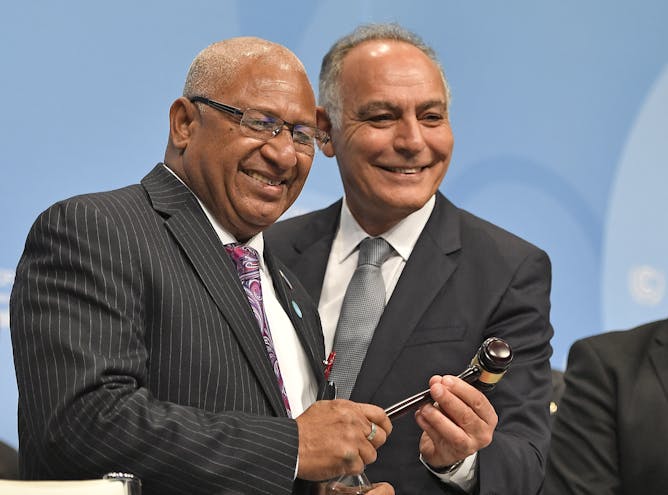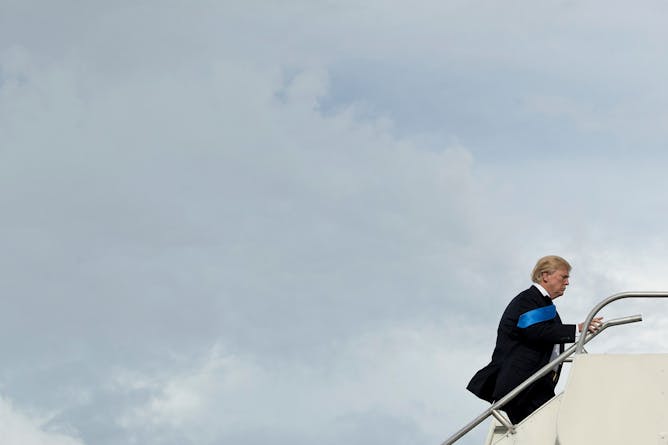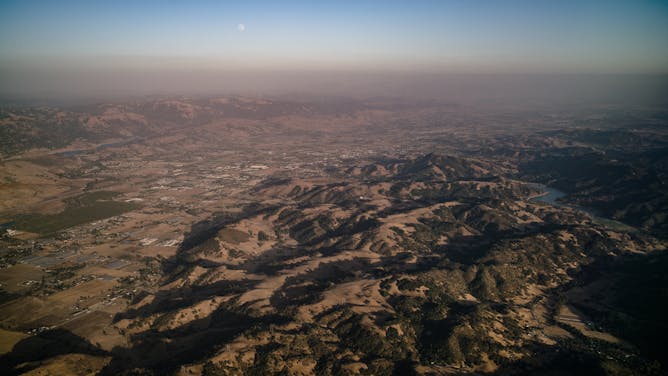|
With climate scientists predicting global seas could rise six feet or more by 2100, it’s easy to assume that the world’s islanders should plan to move. But three scholars who study nations’ vulnerability to change change see reason for optimism in many small island states. As they explain, not all small island nations are equally vulnerable and many are already adapting to a climate-altered world.
President Donald Trump just returned to Washington after spending almost two weeks in Asia, where he pushed his “America first” approach to trade. In short, Trump assumes the U.S. can act unilaterally without consequences, according to Georgia State political scientist Charles Hankla. American policymakers in the 1930s learned the hard way this isn’t how the global economy works, he writes.
When the heavyweight companies of Silicon Valley were just starting out, they seemed to deliver another part of the California Dream, promising a new, clean industrial future for America. But as University of Nebraska Omaha historian Jason Heppler describes, toxic waste pollution proved a rude awakening.
Finally, Boise State University professor Steven Feldstein – who studied Zimbabwe for years as a State Department official – says it’s too soon to tell whether democracy or more dictatorship will follow yesterday’s overthrow of President Robert Mugabe.
|

COP 22 President Salaheddine Mezouar from Morocco, right, hands over a gavel to Fiji’s prime minister and president of COP 23 Frank Bainimarama, left, during the opening of the U.N. Climate Change Conference in Bonn, Germany, Monday, Nov. 6, 2017.
AP Photo/Martin Meissner
Martina Grecequet, University of Minnesota; Ian Noble, University of Notre Dame; Jessica Hellmann, University of Minnesota
Although climate change threatens the world's small island nations, many can find ways to adapt and preserve their homes and cultures – especially if wealthy countries cut emissions and provide support.
|

Trump will soon learn the costs of going it alone on trade.
AP Photo/Andrew Harnik
Charles Hankla, Georgia State University
American lawmakers in the 1930s learned the hard way what happens when a country raises tariffs and makes other unilateral trade decisions.
|

Aerial view of San Jose, California, 2016.
Gordon-Shukwit
Jason A. Heppler, University of Nebraska Omaha
Silicon Valley brought together natural surroundings, suburban homes and futuristic high-tech work. But industrial pollution betrayed the California dream.
|
|
|
|
|
|
|
Economy + Business
|
-
Jeff Sovern, St. John's University; Ann L. Goldweber, St. John's University; Gina M. Calabrese, St. John's University
The decision by the bureau's founding director to step down this month offers Republicans and the Trump administration a chance to finally gut the bureau they've long despised.
|
|
|
|
|
|
Trending on site
|
-
Jean Twenge, San Diego State University
According to a new analysis, the number of US teens who felt "useless" and "joyless" grew 33 percent between 2010 and 2015, and there was a 23 percent increase in suicide attempts.
-
Robert Kozinets, University of Southern California, Annenberg School for Communication and Journalism
The way people use social media – and the algorithms inside those systems – increases passions, and drives people to polarizing extremes.
-
Michael Carolan, Colorado State University
The fate of turkey tails shows how Americans have shifted from eating whole animals to focusing on choice cuts – and the surprising places where unwanted parts end up.
|
|